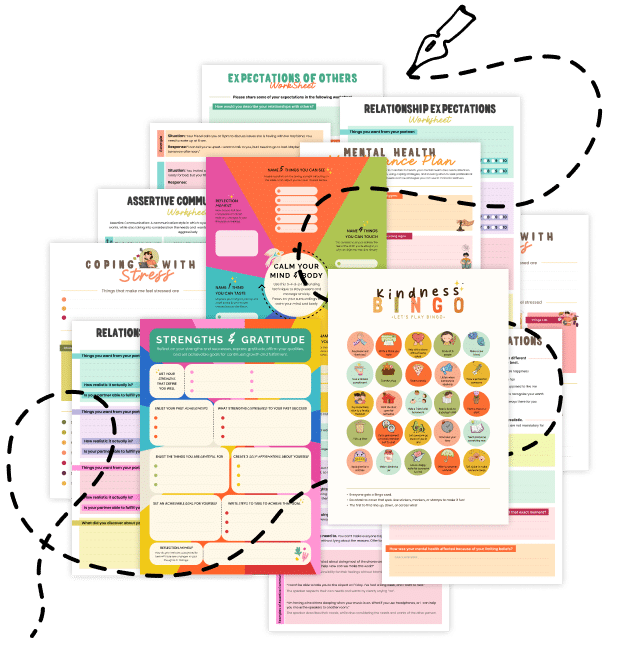20 Things About Self-Imposed Cognitive Limitations
Discover how self-imposed cognitive limitations can hold you back—and learn practical strategies to overcome them. Explore 20 key insights into these mental barriers and unlock your full potential.
1. What Are Self-Imposed Cognitive Limitations?
Self-imposed cognitive limitations are mental barriers we create for ourselves—often unconsciously—that restrict our thinking, problem-solving, or creativity. They manifest as beliefs like “I’m not smart enough for this” or “This task is too hard,” limiting your ability to perform at your best.
2. The Power of Self-Perception
Your beliefs about your own abilities shape your cognitive performance. When you hold limiting beliefs, you inadvertently restrict your thinking, setting boundaries that may not exist in reality.
3. How Self-Imposed Cognitive Limitations Develop
These limitations often form from past experiences, societal expectations, or internalized negative feedback. Over time, repeated exposure to such messages can solidify into self-imposed mental constraints.
4. Impact on Learning and Growth
When you believe you’re limited, you might avoid challenges, stick to familiar routines, and miss opportunities for growth. This can hinder learning, creativity, and career advancement.
5. Common Examples of Self-Imposed Cognitive Limitations
- Fixed Mindset: Believing your intelligence or talents are static rather than improvable.
- Fear of Failure: Avoiding new experiences because you’re convinced you’ll fall short.
- Overgeneralization: Thinking that one setback means you’re incapable in a certain area.
6. The Role of Self-Talk in Self-Imposed Cognitive Limitations
Your inner dialogue plays a major role. Negative self-talk, like “I can’t do this,” reinforces these limitations, creating a self-fulfilling prophecy that curbs your potential.
7. Recognizing the Signs of Self-Imposed Cognitive Limitations
Be alert to patterns of procrastination, self-doubt, and avoidance of challenging tasks. These behaviors can indicate that self-imposed limitations are keeping you from taking risks or trying new things.
8. Challenging Limiting Beliefs
One effective strategy is to question the validity of these beliefs. Ask yourself, “Is this really true?” or “What evidence do I have to support this limitation?” Critical self-reflection can help weaken these mental barriers.
9. Embracing a Growth Mindset
Adopt the belief that abilities can improve with effort and practice. Embracing a growth mindset shifts your focus from inherent limitations to the possibility of progress and learning.
10. Incremental Successes
Set small, achievable goals that stretch your capabilities gradually. Each success builds confidence and helps dismantle the belief that you’re incapable of growth.
11. Cognitive Behavioral Techniques
Techniques from Cognitive Behavioral Therapy (CBT) can be very helpful. By identifying and reframing negative thoughts, you can replace limiting beliefs with empowering ones.
12. The Importance of Feedback
Constructive feedback—whether from mentors, peers, or self-reflection—can challenge your perceptions and reveal areas for growth that you might have underestimated.
13. The Danger of Comfort Zones
Staying within your comfort zone limits your exposure to new challenges. Stepping out and trying something unfamiliar can help you realize that many of your self-imposed limits are unfounded.
14. Overcoming Perfectionism
Perfectionism is a common self-imposed limitation that can paralyze progress. Embrace mistakes as learning opportunities rather than as evidence of inadequacy.
15. Building Resilience Through Setbacks
Learn to view setbacks as part of the growth process. Resilience is built when you overcome obstacles and discover that you can handle more than you initially believed.
16. The Role of Visualization
Visualize yourself succeeding in challenging tasks. Mental rehearsal can boost confidence and break down the mental barriers that limit your potential.
17. Cultivating Curiosity
Adopt a mindset of curiosity and exploration. Ask questions, experiment, and seek new experiences. This approach not only expands your knowledge but also challenges the notion of fixed limitations.
18. Avoiding Comparisons
Comparing yourself to others can reinforce limiting beliefs. Focus on your personal progress and celebrate your unique strengths and improvements.
19. Long-Term Benefits of Self-Imposed Cognitive Limitations
Overcoming self-imposed cognitive limitations can lead to enhanced creativity, improved problem-solving, and a greater willingness to take on challenges—all of which contribute to personal and professional growth.
20. Related Topics to Explore
- Growth Mindset: Embracing the belief that abilities can improve with effort.
- Self-Talk Restructuring: Transforming negative internal dialogue into positive, supportive thoughts.
- Metacognitive Monitoring: Keeping track of your thought processes to identify and overcome limiting beliefs.
- Adaptive Confidence: Building a realistic and resilient sense of self-assurance.
Quick Tips to Overcome Self-Imposed Cognitive Limitations
- Question Your Beliefs: Regularly challenge negative assumptions about your abilities.
- Set Achievable Goals: Start small and gradually push your boundaries.
- Practice Positive Self-Talk: Replace “I can’t” with “I’m learning” or “I’m improving.”
- Seek Constructive Feedback: Use feedback as a tool for growth rather than a measure of failure.
- Celebrate Progress: Acknowledge even small wins to reinforce your capacity for change.
Self-imposed cognitive limitations can be powerful obstacles to growth, but they are not set in stone. By recognizing and challenging these mental barriers, adopting a growth mindset, and taking proactive steps to build confidence, you can unlock your full potential. Overcoming these limitations not only improves your ability to learn and solve problems but also empowers you to pursue new opportunities with resilience and creativity.
Share this article with anyone ready to break free from the mental constraints holding them back. With the right strategies, you can transform your self-perception and open up a world of possibilities!

